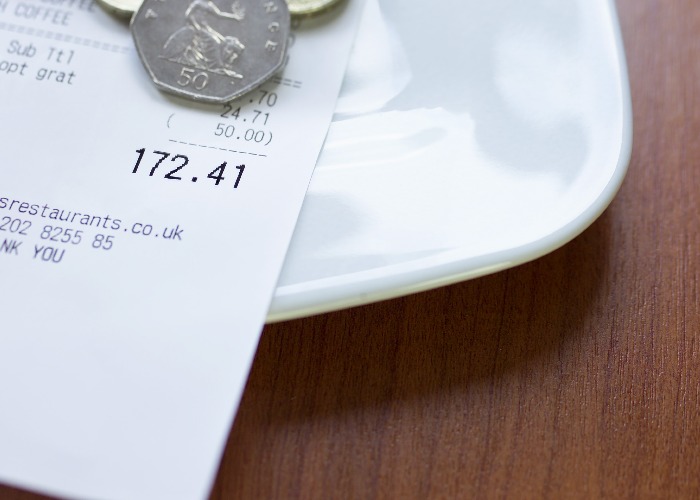Restaurant discretionary service charge could be scrapped

New Government proposals aimed at clarifying who actually receives tips
Discretionary service charges could be banned under new Government proposals.
Business Secretary Sajid Javid has launched a consultation on tipping amid confusion as to who actually receives customer gratuities.
Some of the country’s most popular restaurant chains were criticised last summer for their poor tipping practices. Pizza Express, Strada, Zizzi, Ask and Prezzo were among those accused of keeping part of the service charge rather than giving it all to staff.
The proposals
Basically, the Government wants to make it clearer where tips go as well as putting an end to unfair tipping practices.
As it stands, a number of restaurants automatically add a 10%-15% service charge to their bills. Ministers fear that this often leads to ‘double tipping’ because diners don’t realise that they have already paid a service charge before leaving cash for their waiter.
It’s also hoped that the proposals will limit how much employers can take from the service charges. The discretionary service charge may even be scrapped altogether.
“We will look closely at all the options, including legislation if necessary,” said Javid. At the moment there isn’t any law that states how much of the service charge goes to the employer and how much to the staff.
The consultation paper follows evidence on tipping practices in the hospitality, leisure and service industry gathered last year, reflecting opinions from customers, workers and employers.
Worker groups want 100% of tips to go to workers, while the majority of customers (61%) want to see tips either going to the employee or put in a pot which can’t be controlled by the employer (23%), known as a ‘tronc’. It’ll come as no surprise that employers were more in favour of keeping the current treatment of discretionary payments for service.
A recent survey by OpenTable found that 87% of UK customers always leave a tip, with the average person leaving 9% of the bill.
Make sure tips go to staff, not bosses
Unfortunately there’s only one way to ensure that your tips go to staff, but it’s pretty simple: pay in cash rather than card.
Get rewarded for everyday spending with a reward credit card. Compare some of the best deals on the market with loveMONEY right now.
Be better off with loveMONEY:
Nine shopping rip-offs you can avoid
Comments
Be the first to comment
Do you want to comment on this article? You need to be signed in for this feature